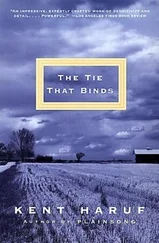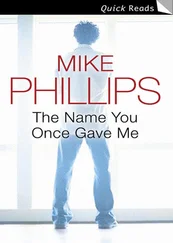Kent Haruf - Where You Once Belonged
Здесь есть возможность читать онлайн «Kent Haruf - Where You Once Belonged» весь текст электронной книги совершенно бесплатно (целиком полную версию без сокращений). В некоторых случаях можно слушать аудио, скачать через торрент в формате fb2 и присутствует краткое содержание. Год выпуска: 2004, Издательство: Pan MacMillan, Жанр: Современная проза, на английском языке. Описание произведения, (предисловие) а так же отзывы посетителей доступны на портале библиотеки ЛибКат.
- Название:Where You Once Belonged
- Автор:
- Издательство:Pan MacMillan
- Жанр:
- Год:2004
- ISBN:нет данных
- Рейтинг книги:5 / 5. Голосов: 1
-
Избранное:Добавить в избранное
- Отзывы:
-
Ваша оценка:
- 100
- 1
- 2
- 3
- 4
- 5
Where You Once Belonged: краткое содержание, описание и аннотация
Предлагаем к чтению аннотацию, описание, краткое содержание или предисловие (зависит от того, что написал сам автор книги «Where You Once Belonged»). Если вы не нашли необходимую информацию о книге — напишите в комментариях, мы постараемся отыскать её.
Where You Once Belonged — читать онлайн бесплатно полную книгу (весь текст) целиком
Ниже представлен текст книги, разбитый по страницам. Система сохранения места последней прочитанной страницы, позволяет с удобством читать онлайн бесплатно книгу «Where You Once Belonged», без необходимости каждый раз заново искать на чём Вы остановились. Поставьте закладку, и сможете в любой момент перейти на страницу, на которой закончили чтение.
Интервал:
Закладка:
Perhaps that was why, about a week after he was released, he showed up on Main Street once more. It was in the middle of a weekday morning. He walked into Bradbury’s Bakery to have coffee. I don’t know, perhaps he had in mind to test the water, to take a kind of reading of Holt County feelings about things. The bakery was crowded as usual at that time of day. Businessmen and housewives and store clerks and one or two farmers were drinking coffee and eating doughnuts, sitting about the room at the various tables. They were all talking.
Then Soames walked into the bakery and everyone got quiet. They watched this small tidy familiar old man fill his coffee cup at the urn at the front counter, watched him pay for it and then turn to find a seat. Across the room there was a vacant chair at a table near the wall. Ralph Bird and a couple of other men happened to be sitting at the table. Soames approached them.
“Wait just a goddamn minute,” Ralph Bird said. “Where do you think you’re going with that?”
Soames stood beside the table staring at him.
“Get the hell out of here. You ain’t sitting here with us.”
Soames looked at the other men. He had done books for each of them. They stared back at him.
And he was just an old defeated man now and he knew everyone in the room. His hand began to shake. The coffee in the cup spilled out over his hand and shirt cuff and dripped onto the floor. He was making a mess. He continued to stand there, his hand shaking and the hot coffee burning his hand, while his eyes clouded over. His eyes seemed to lose their focus.
At last one of the girls came out from behind the counter and removed the cup from his hand. “Here,” she said, “give me that.” It was as if he were a child. She wiped his hand with a dishrag and knelt to wipe the floor.
Then Soames looked once more at the people in the bakery. They were still watching him. He turned and walked out of the store onto the sidewalk. They could see him through the plate-glass windows. He stood for a moment, looking up and down the street. Finally he went home again.
At his home on Cedar Street he entered by the front door and climbed the stairs to the attic. His wife was at the back of the house, peeling carrots at the kitchen sink. Later she would tell people that she didn’t even know he was home yet. He was always so quiet.
She did hear the explosion in the attic, however. Several other people did too. The neighbors heard it.
Because, after he had mounted the stairs, he had entered the dusty box-filled room and had sat down on an old trunk near the chimney, under a single dim light bulb suspended from one of the rafters. Sitting on the trunk, he had put a shell in the chamber of an old.22 single-shot rifle. Then he had placed the butt of the rifle on the floor between his feet and had closed his tired little mouth around the gun barrel. And whether he paused once to look about him, as people do in movies, to take one last look out the attic window toward the tops of the trees standing up in the backyard, no one knows. We simply know that he fired a single sphere of lead up through his palate into his brain and that this little sphere of lead destroyed him.
It destroyed him, but it didn’t kill him. The bullet had lodged in his brain in such a way that he was still alive.
He was slumped against the chimney when his wife ran upstairs to find out what had caused the noise. The gun was still between his knees. There was considerable blood running down onto his shirtfront and his head was thrown back horribly. He was still breathing, though. There were red bubbles coming up out of his mouth. Looking at him, Mrs. Soames became hysterical. She began to scream. Then the neighbors arrived and it was one of them who called the police.
They flew him immediately to a hospital in Denver. And in Denver the surgeons did what they could; they closed the hole in the roof of his mouth and made other repairs. But in the end they decided to leave the bullet where it was. They said it might kill him to try to remove it. Afterward when he was well enough to be released from the hospital he was brought back home again to Holt.
And so he looked all right, more or less, when we saw him again. He still resembled himself; he was still a neat tidy little old man. It was only his eyes that looked different. His eyes appeared to be blank now, expressionless, as if there was nothing behind them. He could eat and he could drink liquids. He could still function. He could even talk a little, in a harsh lisping monotone. But it didn’t matter if he could talk. What he had to say now was all nonsense, mere jabber and repeated dribble about nothing.
So old Mrs. Soames didn’t know what to do with him then. She dressed him and fed him every day, and sat him on the swing on the front porch. And occasionally she stood him out in the front yard where he could hold a garden hose in his hands. But, if she let him, he would stand there all afternoon, slapping water on the grass. He seemed to like playing with water. Then people would walk by the house and see him. And sometimes they would say something to him, something cruel and nasty, something vindictive like: “You old son of a bitch. Why don’t you try it again? Why don’t you use a deer rifle this time? Just try it once. Oh, goddamn you, anyway.” And Charlie would simply go on spraying the grass with water while some of it ran off his elbow onto his shoes; he would nod and jabber at the people passing by and he would seem to listen to their talk, cocking his head like some ancient, confused little bird. And when they moved away down the street he would even seem to follow them with his blank eyes. But none of that meant anything to him. It was all a mere show to him, a display of shadows that happened to move and talk. None of it held any significance.
If he had only known it then, I suppose he might even have been happy. He couldn’t understand anything his wife or anyone else in Holt had told him, and he couldn’t recall the first thing about debits and credits and about double entry bookkeeping. Consequently he knew nothing at all, nothing whatsoever, about his involvement in the embezzlement of Co-op funds.
So he was in a perfect state now: he was mad. He couldn’t be bothered anymore and he was completely beyond the reach of the law. There wasn’t any way to punish him for what he had done. He was beyond all of that. Any thought of putting him on trial was out of the question.
8
Now people in Holt felt they had to turn elsewhere for some form of restitution. They felt doubly cheated. Burdette had disappeared at the end of December and every day he was gone it became more obvious that the police were never going to locate him and bring him back. Now his accomplice wasn’t even going to be put on trial.
So in time people began to turn on his wife, on Jessie. They wanted satisfaction from someone and she was still here, she was still in Holt, and it made it easier that they thought of her as an outsider. She had been in Holt for almost six years, but she had always been too aloof for her own good, people said. From the day she had arrived she had held herself apart. It was as if she felt she were too good for them — that’s what people thought. So they were naturally a little in awe of her, and a little antagonistic. They didn’t understand her; they thought of her as that woman Jack Burdette had discovered in some Holiday Inn in Oklahoma, that small quiet overly independent woman he had met and married in Tulsa when he should have married Wanda Jo Evans, a local girl whom everybody liked and admired. No, she had not grown up here, and there wasn’t anyone in town who knew very much about her.
So perhaps it was inevitable, given the pitch of emotion and the nature of people, that since there was no one else in Holt who was still available to them, they turned on Jessie Burdette. They were outraged by what had happened and nearly everyone had been affected by it in some way. They began to associate the problems at the elevator with Jessie’s arrival. The notice she had printed in the Mercury ended up not making any difference to anyone. Too much had happened since then, and now no one quite believed her.
Читать дальшеИнтервал:
Закладка:
Похожие книги на «Where You Once Belonged»
Представляем Вашему вниманию похожие книги на «Where You Once Belonged» списком для выбора. Мы отобрали схожую по названию и смыслу литературу в надежде предоставить читателям больше вариантов отыскать новые, интересные, ещё непрочитанные произведения.
Обсуждение, отзывы о книге «Where You Once Belonged» и просто собственные мнения читателей. Оставьте ваши комментарии, напишите, что Вы думаете о произведении, его смысле или главных героях. Укажите что конкретно понравилось, а что нет, и почему Вы так считаете.












